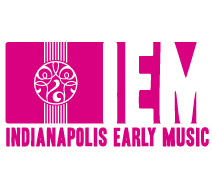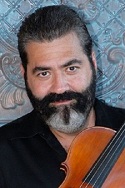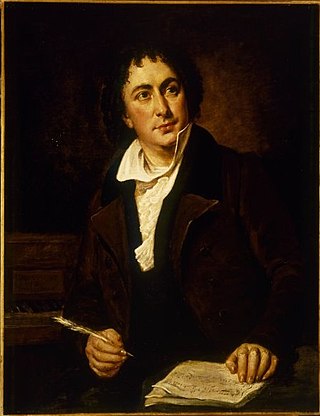Shulamit Ran is an Israeli-American composer. She moved from Israel to New York City at 14, as a scholarship student at the Mannes College of Music. Her Symphony (1990) won her the Pulitzer Prize for Music. She was the second woman to win the Pulitzer Prize for Music, the first being Ellen Taaffe Zwilich in 1983. Ran was a professor of music composition at the University of Chicago from 1973 to 2015. She has performed as a pianist in Israel, Europe and the U.S., and her compositional works have been performed worldwide by a wide array of orchestras and chamber groups.

Raffaele Marcellino is an Australian composer.
Chris Brown is an American composer, pianist and electronic musician, who creates music for acoustic instruments with interactive electronics, for computer networks, and for improvising ensembles. He was active early in his career as an inventor and builder of electroacoustic instruments; he has also performed widely as an improviser and pianist with groups as "Room" and the "Glenn Spearman Double Trio." In 1986 he co-founded the pioneering computer network music ensemble "The Hub". He is also known for his recorded performances of music by Henry Cowell, Luc Ferrari, and John Zorn. He has received commissions from the Berkeley Symphony, the Rova Saxophone Quartet, the Abel-Steinberg-Winant Trio, the Gerbode Foundation, the Phonos Foundation and the Creative Work Fund. His recent music includes the poly-rhythm installation "Talking Drum", the "Inventions" series for computers and interactive performers, and the radio performance "Transmissions" series, with composer Guillermo Galindo.
A laptop orchestra or laptop ensemble (LE) is a chamber music ensemble consisting primarily of laptops. Education based laptop orchestras include SCLOrk , BLOrk, CLOrk, CMLO, HELO, L2OrkOLO, PLOrk, SLOrk, SAMPLE, and ELUNM (Ensamble de Laptops de la Universidad Nacional de Música in Peru. City based laptop orchestras include BiLE, MiLO, and BSBLOrk, MLOrk, LOrk•A.

Marek Kopelent was a Czech composer, music editor and academic teacher, who is considered to have been at the forefront of the "New Music" movement, and was one of the most-published Czech composers of the second half of the 20th century.

Claude Ledoux is a Belgian composer, born in 1960.
Thaïs St. Julien was a soprano from New Orleans. She studied under Charles Paddock, Virginia MacWatters and Norma Newton, and was Co-Director of the New Orleans Musica da Camera, which specialises in music of the Middle Ages and the Renaissance, and has toured throughout the Gulf South. She was also Foundress of Vox Feminæ, the female choral extension of the MdC.
Rolf Rainer Gehlhaar was an American composer, Professor in Experimental Music at Coventry University and researcher in assistive technology for music.
James Clarke is an English composer sometimes associated with the New Complexity school.

Indianapolis Early Music (IEM) is a non-profit organization established in Indianapolis in 1966 to organize concerts featuring music of the medieval, renaissance, baroque, and early classic eras. Since 1966, it has produced the annual Indianapolis Early Music Festival, the oldest continuous Early Music festival in the United States.
Olga Hans is a Polish composer and music educator.
Diane Thome was an American composer. She studied piano with Dorothy Taubman and Orazio Frugoni and composition with Robert Strassburg, Roy Harris, Darius Milhaud, A.U. Boscovich, and Milton Babbitt.
The Atlanta Baroque Orchestra (ABO), founded in 1997 in Atlanta, Georgia, is the first and oldest professional orchestra in the Southeastern United States of America dedicated to historically informed performance, of music from the Baroque era on period instruments. The Atlanta Baroque Orchestra gave its premiere concert in January, 1998. The first director of the ABO was lute and theorbo player Lyle Nordstrom, who departed in 2003. John Hsu, noted performer on the viola da gamba and baryton, took the title of artistic advisor, becoming artistic director in July 2004; he continued through the 2008/2009 season. From 2004 through 2011, the resident director was founding member Daniel Pyle, harpsichordist and organist, instructor of music at Clayton State University, and organist and choir director at the Anglican Church of Our Saviour in Atlanta. Violinist, Baroque dancer and choreographer Julie Andrijeski became artistic director in February, 2011.

Richard Fleischman is an American violist and viola d'amore player, conductor and pedagogue.

Australian classical music has developed from early years in the Australian colonies, until today. Today, each state has an orchestra and there are many major venues where classical music is performed.
Byron Schenkman is an American harpsichordist, pianist, music director, and educator. Schenkman has recorded over 40 CDs and has won several awards and accolades. He co-founded the Seattle Baroque Orchestra, and was its artistic director. Schenkman currently directs a baroque and classical chamber music concert series, Sound Salon, formerly Byron Schenkman & Friends, and performs as a recitalist and concert soloist. He also performs with chamber music ensembles, and is a teacher and lecturer.

Michael Pospíšil is a classical bass, specialising in historically informed performance. He is the founder and leader of the ensemble Ritornello which performs music of the 16th and 17th centuries for voices and a great variety of instruments.

Myrna Herzog is a Brazilian-born Israeli musician, conductor, teacher and early music researcher. She is a player of the viol, viola da gamba and baroque cello.

Richard Stone is an American lutenist, music director, educator and music editor. He performs on lute and theorbo as a soloist and accompanist; he and Gwyn Roberts co-founded and co-direct Tempesta di Mare, The Philadelphia Baroque Orchestra; his musical editions are published by AR Editions and Prima la Musica; and he lectures and teaches lute, theorbo, continuo and performance practice for singers and instrumentalists at the Peabody Conservatory of The Johns Hopkins University.
Alessandro Solbiati is an Italian composer of classical music, who has composed instrumental music for chamber ensembles and orchestra, art songs and operas. He received international commissions and awards, and many of his works are recorded. He is also an academic, teaching in Italy and France.








